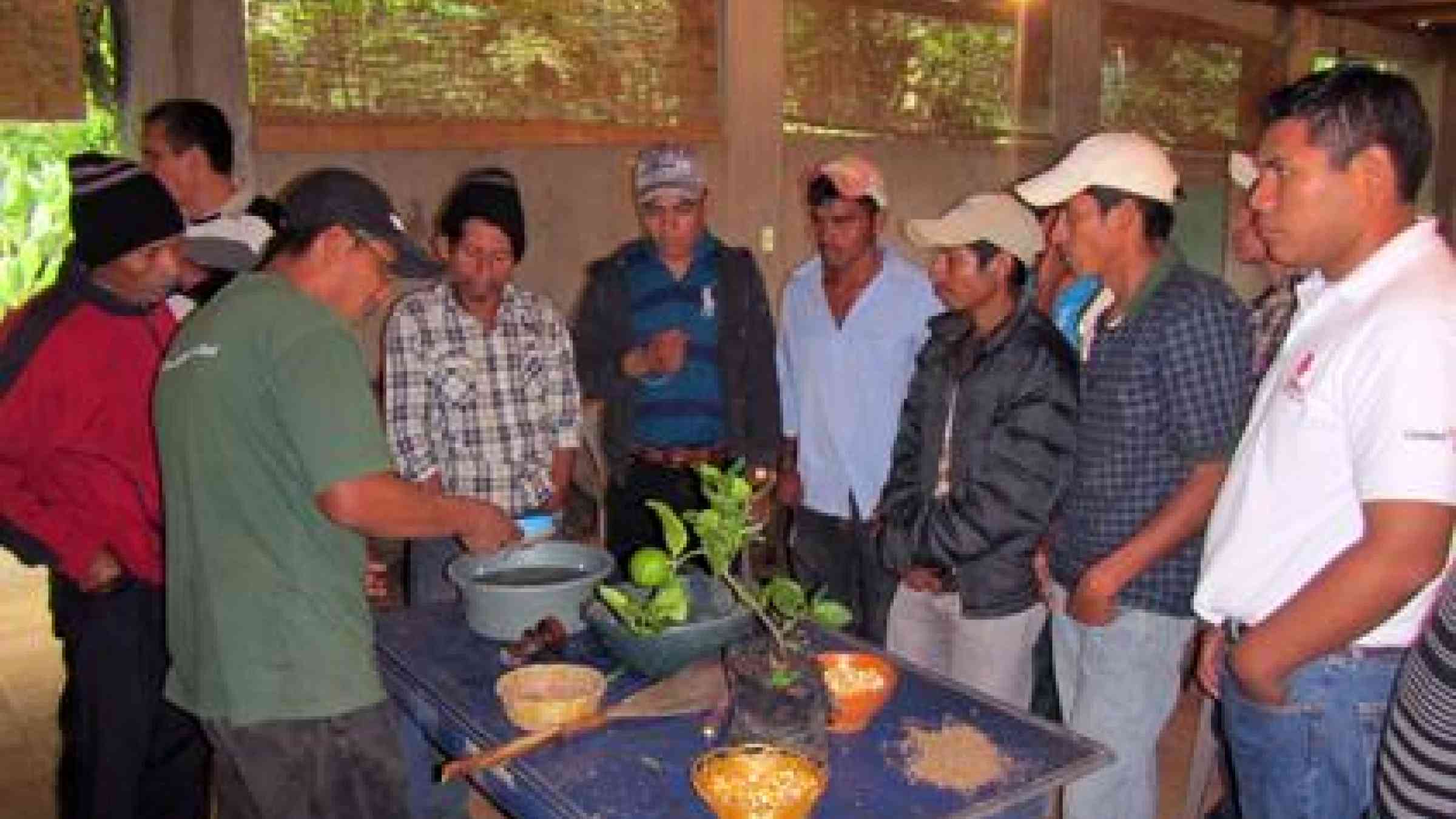Banking seeds in a brutal climate

A gathering at the seek bank in El Solis, Guatemala. The community deploys local knowledge of biodiversity to reduce disaster risk and supports International Day for Disaster Reduction. (Photo: UNISDR)
EL SOLĺS, Guatemala, 2 October 2015 - The tiny community of El Solís in rural Guatemala is tapping into its local knowledge on biodiversity and maintaining a native seeds bank to help it cope with drought, food insecurity and climate change.
El Solís is a small community of 51 families or 306 persons, located in the basin of the San Vicente River, Zacapa Department. Only 10 family homes have electricity. 98% of the population is dedicated to seasonal agriculture for family subsistence, which is complemented by migrant labour.
In the community, traditional knowledge on biodiversity and growing practices has been handed down through generations, an important survival tool in hard times.
Its territory lies within one of the driest zones of Guatemala, the “Dry Corridor”. It suffers water source scarcity and low levels of rainfall. The terrain is steep and arid, with little vegetation, low potential for crops and limited food availability.
In these harsh conditions, the people cultivate corn and beans, an essential part of their daily diet. Success depends on water, weather and seeds availability. In 2014 the farmers of the area estimated crop losses at over 60%. Predictions for the future are not positive either.
The community has allied itself with the Partners for Resilience (PfR). and set up a Coordination Committee with 22 participating families including older persons, guardians of local knowledge on biodiversity.
Through a technical and practical workshop on seed conservation techniques, the Native Seed Bank was designed and its management was planned. Basic regulations and internal agreements were made for its long-term execution.
After selecting the location and its concession for 10 years, the building started and required materials were provided, so that the Seed Bank could start operating. It include silos, containers and shelves. The elders and youngsters together collected, selected and naturally treated the seeds native to the area, which were stored in the Seed Bank.
In this way, a germplasm bank was created that now sustains traditional agrobiodiversity, especially of grains species. In the future, fruit, vegetables and medicinal herbs and native tree species will be included, many of which are threatened by hybrid and genetically modified seeds.
Of special importance is the conservation of the basic native grains of corn (Zea mayz) and bean (Phaseolus vulgaris). They are the grains that practically sustain the existence and development of the community.
“We are very happy with the Native Seed Bank. It is the way to secure our food, for our family and community, but most of all it guarantees that the ways that our grandfathers and fathers taught us to cultivate the land and take care of our seeds is maintained. These seeds are our own and we hope to maintain them so that we can keep on feeding our children and grandchildren for years and years,” said Juárez Asencio, elder and member of the Coordination Committee.
“With this Seed Bank we have the opportunity to store our basic grains or basic seeds so that they can be reproduced and exchanged at any time. I am thankful for this opportunity for our people, our farmers, with a vision towards assuring food security, which is priceless,” said Javier Antonio Ortiz, Mayor of de Cabañas.
*The community of El Solís has been nominated as a Community Champion of Disaster Risk Reduction to make International Day for Disaster Reduction on October 13 which celebrates local knowledge this year. Sign up for the International Day Thunderclap.
**Partners for Resilience – PfR in Guatemala is formed by Red Cross, the Red Cross Red Crescent Climate Center, CARE and Wetlands International, plus local partners of the Guatemalan Red Cross, Cáritas Diócesis de Zacapa and Asociación Vivamos Mejor.
Explore further
Also featured on
Is this page useful?
Yes No Report an issue on this pageThank you. If you have 2 minutes, we would benefit from additional feedback (link opens in a new window).